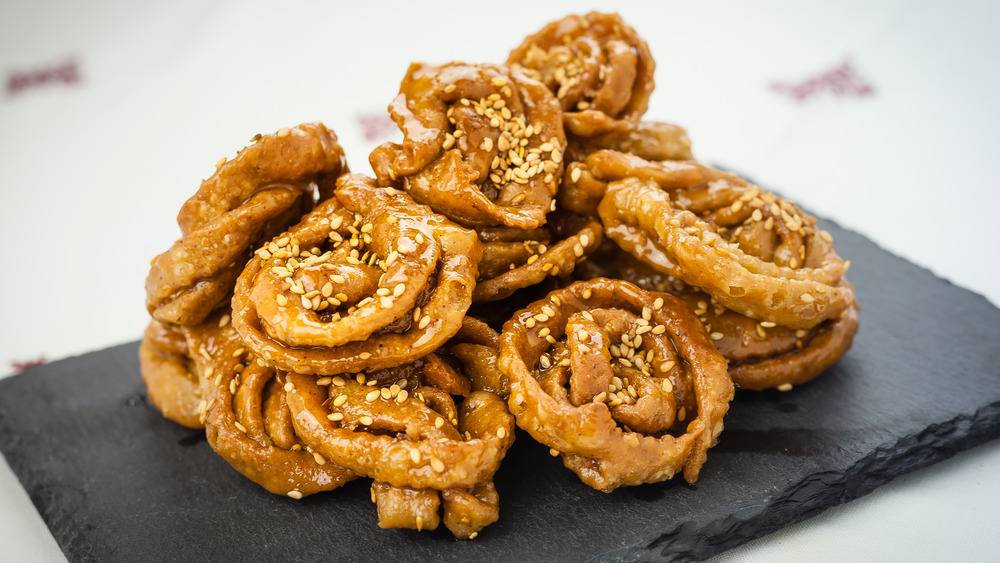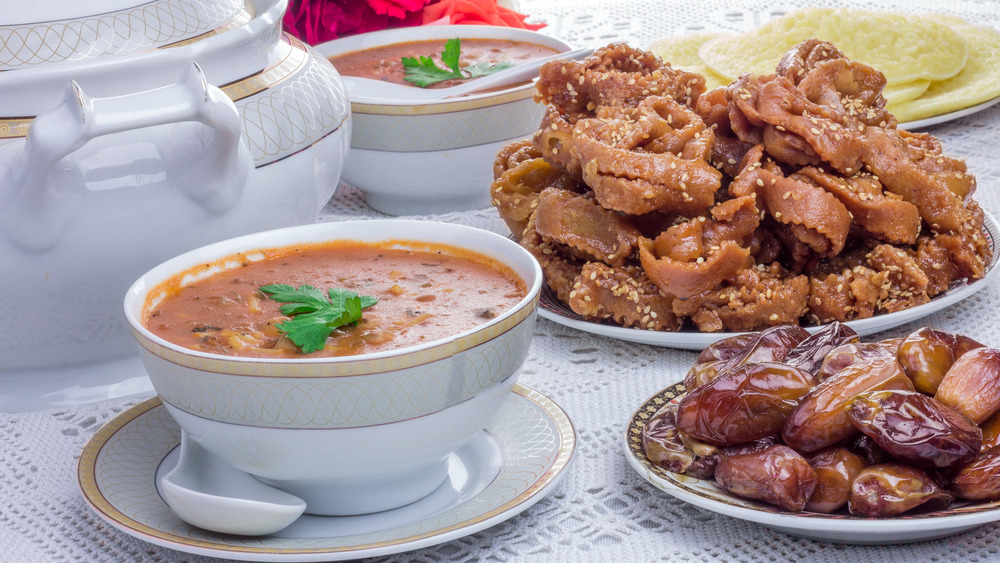What Are Chebakia And What Do They Taste Like?
If you've been to a Middle Eastern bakery, chances are you've seen or even tasted chebakia, even if you didn't know what they were called. Also referred to as mkharka, this traditional Moroccan dessert is served on special occasions, such as Ramadan, according to Taste of Maroc.
Sweet, complex, delicious, and designed to look like flowers, they are made from thin dough seasoned with the unmistakably Middle-Eastern flavors of sesame, cinnamon, saffron, and anise. The dough is cut with a fluted pastry cutter and artistically twisted into a floral and somewhat serpentine-looking cluster (via Taste of Maroc). After the flowers are deep-fried in vegetable oil, they are dunked in hot honey infused with fragrant orange flower water.
In addition to Ramadan, Moroccans also bake and serve chebakia at weddings and celebrations of birth (via Taste of Maroc). One reason they may be reserved for special occasions and holidays is that they are somewhat difficult and very time-consuming to make, according to MarocMama. Without fail, however, chebakia make an appearance on every Moroccan family's Ramadan table, according to the site.
A sweet accompaniment to harira soup
It is traditional for some Moroccans to break their Ramadan fast with chebakia cookies served alongside of dishes like harira soup, according to My Moroccan Food. Harira is the perfectly savory and complex foil to the sweet pastry, and contains lamb, beef, or chicken, lentils, chickpeas, vegetables, turmeric, cumin, and cilantro (via Amira's Pantry and Epicurious). For folks who don't have the time and inclination to make chebakia from scratch, they're found in abundance in the Morocco's bustling market stalls and bakeries in the days before Ramadan.
My Moroccan Food points out that the experience of enjoying this favorite pastry (also known as griwech or rose des sables) is multi-faceted. Deep frying the chebakia gives them both a chewy and crunchy texture, and the flavors of sesame, honey, and turmeric are upfront and distinct. With many levels of flavor, says the site, it's difficult to understand this cookie without tasting it yourself.
Described by Morocco World News as something you absolutely must try, look for them at a Middle Eastern bakery or specialty store near you, or if you have a few hours, visit Taste of Maroc or MarocMama to learn how to make them yourself.

